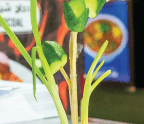The Paris Review Staff’s Favorite Books of 2018

Lucia Berlin in Oakland, California, 1975. Photo: Jeff Berlin (© 2018 Literary Estate of Lucia Berlin LP).
2018 has been a year of fragments, brief episodes, flashes. The seasons, at least here on the East Coast, fractured into kaleidoscopic hot and cold days, which alternated at random. The news was bad, then very bad, then bad, then worse. We were all watching, then no one was watching, then we lay under the covers, lit only by our screens. Was there a summer? Yes, but that’s its own novella, long ago. There was no single narrative.
It seems no surprise, then, that many of the books I loved this year are short-story collections. Lydia Millet’s Fight No More fulfilled the voyeur in me, the one who stares into incandescent ground-floor windows of Brooklyn brownstones. In these linked stories, Nina, a realtor, drifts in and out of the lives and homes of strange, estranged Angelenos. She reveals a web of strangers and, in that isolation, shows our shared humanity. In the stories of Some Trick, Helen DeWitt skewers the publishing world, the art world, mathematicians, and computer scientists with an outsider’s cutting wit reminiscent of Paul Beatty and Nell Zink. Reading Lucia Berlin’s Evening in Paradise (and the accompanying volume of memoir and letters, Welcome Home) is like sitting in the back seat of a car driven so fast over broken roads that your teeth rattle and the empty whiskey bottles clank together, while the driver sings the most heartbreakingly beautiful of songs (if that was a terrible metaphor, then please know I’ve written about these books using fewer metaphors here). Sabrina Orah Mark’s Wild Milk reinvents the fairy tale in a way I didn’t know could still be done. Her craft feels generous, fluid, inventive: she bends myths and archetypes like balloon animals. And yet for all that sense of play, what she reveals is not lightness but wildness. There is something elemental in her stories, as complicated and tangled as the roots of any ancient tree.
I read novels this year as well—, by Jessie Greengrass, flew woefully under the radar, though it’s one of the sharpest, smartest books on motherhood I’ve read in a long time. Sayaka Murata’s stuck with me far longer than I expected it to, especially for a book so intentionally flat and strange. by Shirley Hazzard, was published in 1980, but anyone who knew me this year heard about it. It filled me with a sense of giddiness about the possibilities of literature that I haven’t felt since I was twenty. I followed it up with Penelope Lively’s , from 1988, which, though it didn’t siderate me with the same
You’re reading a preview, subscribe to read more.
Start your free 30 days

